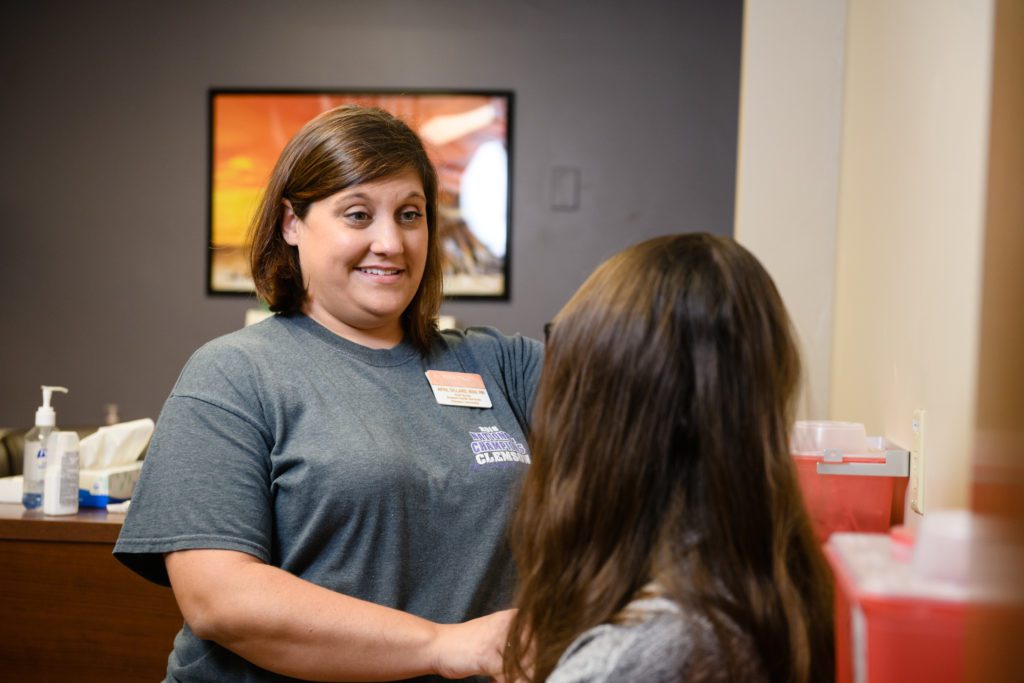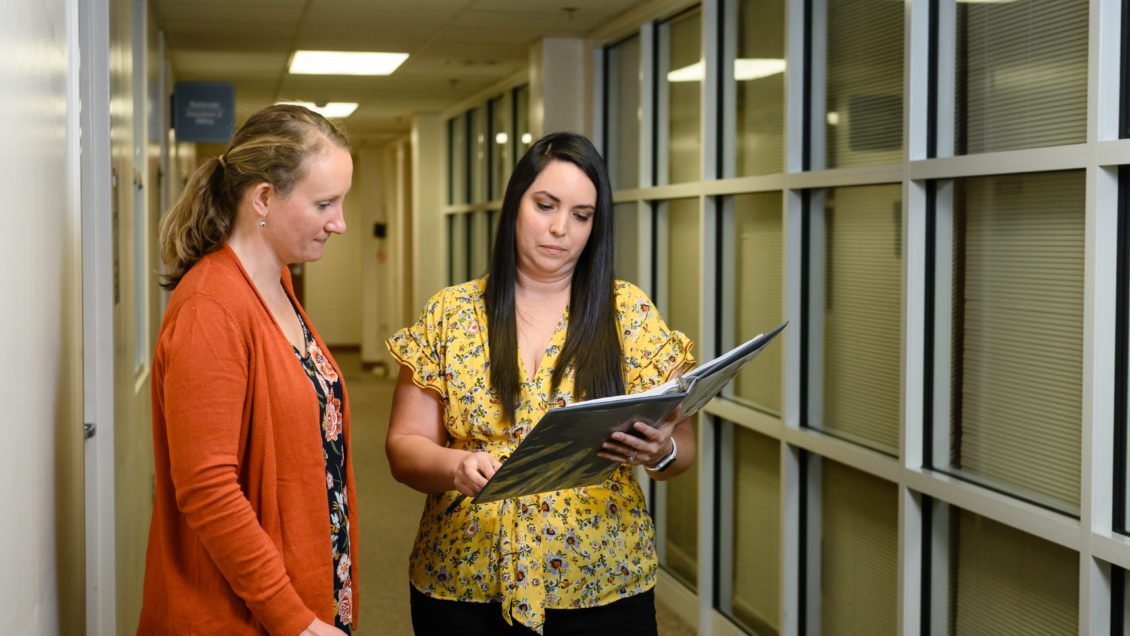Hollie Summey isn’t responsible for reading a student’s x-rays. You won’t find her administering a vaccine, prescribing medication or listening intently to a patient’s psychological concerns. But you’d be hard pressed to find anyone at Redfern Health Center more intricately invested in ensuring high-quality health care is provided to Clemson University students.
Summey serves as Redfern’s quality improvement manager and — as her job title implies — is responsible for leading the health center’s efforts in enhancing its level of care. She collaborates with staff on a daily basis by leading and managing projects to implement new services and workflows, while improving on those already in place.
She studies available metrics, such as occurrence reporting, staff satisfaction, prescribing data, infection control, tracers and chart reviews. She works closely with the Student Affairs director of assessment to ensure the center supports institutional goals and objectives.
One of the primary ways Summey uses data to help inform decision-making is through analysis of patient satisfaction — information that’s usually not far from her fingertips. Twice a month, a random sample of Clemson students who receive services at Redfern are invited to provide anonymous feedback through the American College Health Association (ACHA). The objective behind the survey is simple — it offers comprehensive findings on the quality and efficiency of Redfern operations and care provided by medical and mental health providers.
“We develop recommendations based on the ACHA survey feedback and present it to leadership within Student Health Services,” she said. “It guides areas we need to improve, but also highlights areas where we are doing well.”
Summey wants providers and staff to receive frequent feedback on how they’re doing and believes it can often be a big morale boost, particularly when times get really busy in the center.
Data returns from the most recent survey reflect visible improvement in a number of critical areas. In 2019-20, nearly 94 percent of students indicated their Redfern provider listened carefully to their concerns. Almost 87 percent indicated overall satisfaction with their visit.

Numbers alone don’t mean everything. But they are indicators of positive trends according to Dr. George Clay, executive director for Student Health Services.
“We’re proud of the results, but we’re looking at the data for additional opportunities to make sure we are minimizing the gap from care we provide in a technical sense and what students are really perceiving,” Clay said. “If a student doesn’t believe they’ve gotten the best care, they’re less likely to come back. That ultimately affects the quality of care. We’re constantly looking for opportunities to improve.”
As mentioned, data analysis is only one facet of Summey’s job as quality improvement manager. One of her primary responsibilities is coordination of Redfern’s accreditation process through The Joint Commission. Redfern is the only student health center in the state of South Carolina accredited through the commission’s rigorous ambulatory care standards.
Accreditation relies on data analytics, assessment, project management and process improvement. Summey organizes inter-disciplinary teams to help coordinate projects for improvement as part of the The Joint Commission’s survey every three years.
“It’s very strenuous because The Joint Commission is considered the gold standard in health care,” explained Summey, who earned undergraduate and master’s degrees from Clemson before joining Student Health Services in July 2017. “We like it because it gives us benchmarks on what to strive for in terms of good, safe, quality care.”
Summey said the commission’s standards are wide-ranging and encompass patient care, medication management, communication with patients, credentialing, training, infection control, human resources and beyond.
She developed a passion for quality improvement work through a previous job at a long-term care facility. She described using data and feedback to show Redfern is making a difference in the success of students as a “unique” opportunity.
Clay couldn’t be prouder of Redfern’s accreditation status and believes the quest for continuous improvement plays a big part in meeting high standards for care.
“Students appreciate the range of services that is reflective of our commitment to high-quality health care, which is one of our pillars,” he said. “We know meeting the highest standards of quality for health care produces the best outcomes for individual students who use our services.”

Student Health Services earns reaccreditation from The Joint Commission
Clemson University’s Student Health Services has again earned The Joint Commission’s Gold Seal of Approval for ambulatory care accreditation by demonstrating continuous compliance with its performance standards. The Gold Seal is a symbol of quality that reflects a health care organization’s commitment to providing safe, high-quality patient care.
“Our staff has been recognized once again for excellence and high reliability by the preeminent accrediting body in the healthcare industry,” said George Clay, executive director of Student Health Services. “The results of the survey confirm Redfern Health Center is second to none in serving the needs of our students while meeting the highest standards of safety and care.”
The Joint Commission’s standards are developed in consultation with health care experts and providers, measurement experts and patients. They are informed by scientific literature and expert consensus to help health care organizations measure, assess and improve performance. The surveyors also conduct onsite observations and interviews.
Clemson’s efforts were led by Hollie Summey — quality improvement manager at Redfern — and its reaccreditation team. Student Health Services is an outpatient organization made up of three divisions: Medical Services, Counseling and Psychological Services (CAPS) and Healthy Campus.

